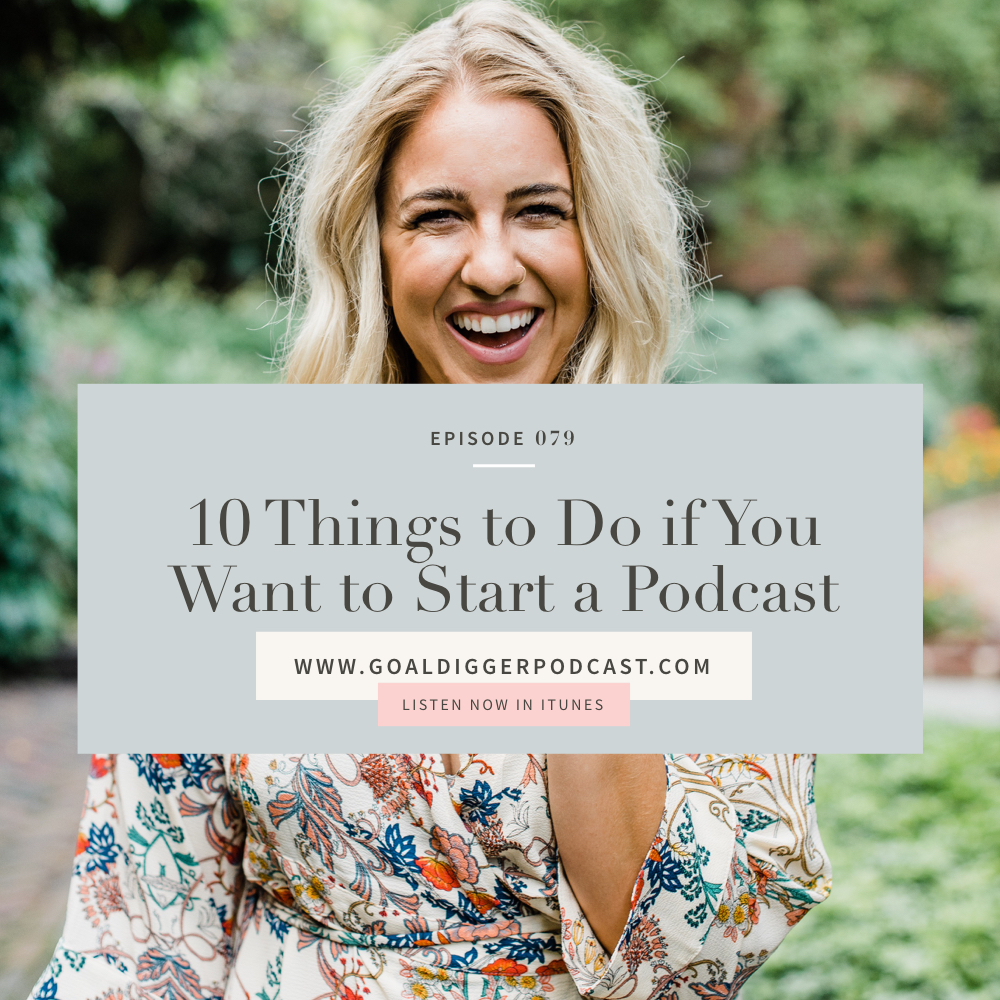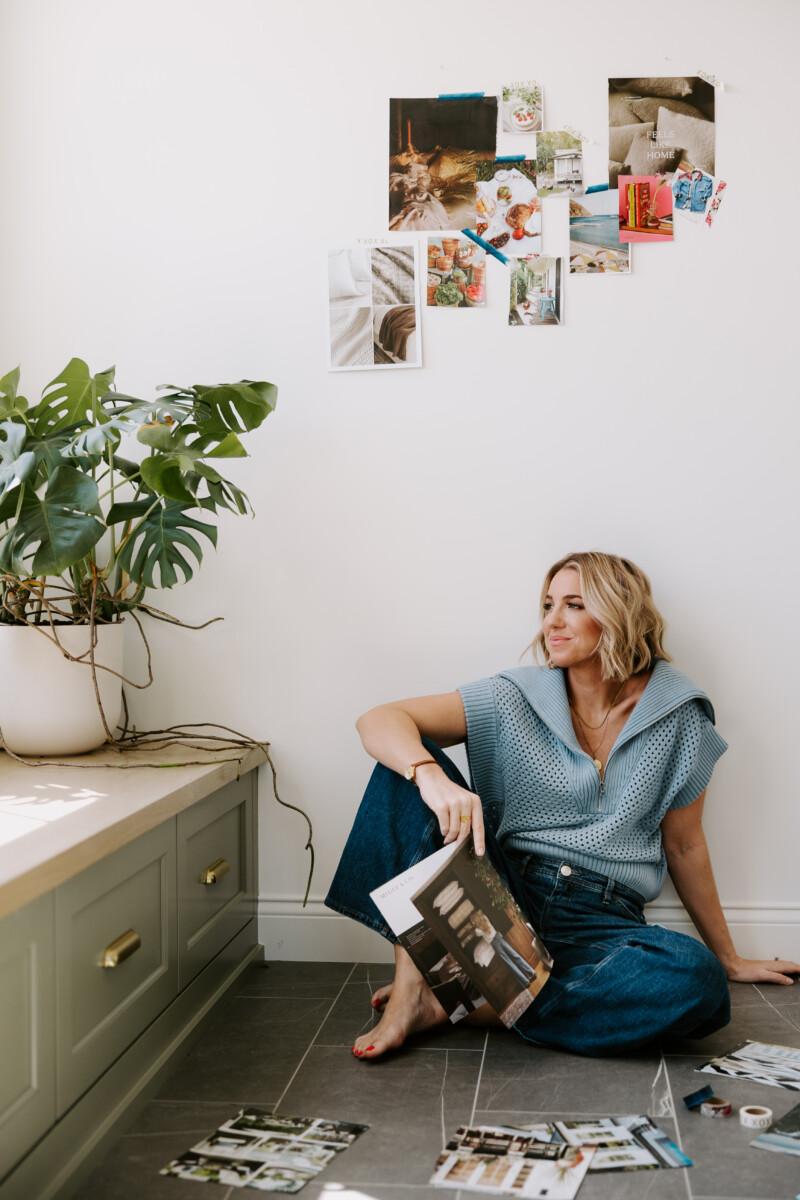
The podcast was never something I planned on doing, I’ve never been told that I have a radio voice in my lifetime. The idea came to me when I was in the shower (no really, it did.) I was listening to a podcast episode and feeling like I was hanging out with a friend, talking biz (you know, in the shower) when I realized: I should really do this.
Make sure you grab my free guide “5 Ways Podcasting can change your business” below!
There’s a ton of benefits to podcasts: you can deliver content quickly and easily, you can teach on multiple subjects, you have a platform to invite guests to be on, you can extend your brand from just written words and images, you can establish your credibility, you can grow a tribe, and you can share your offers in a unique way. The biggest reason why I wanted to do this show was because I was tired of feeling so alone in the business rat race and I wanted to invite listeners to “come as they are” and not feel like they are constantly getting sold to. I saw a need for good, free education and I stepped up to the plate to fill it.
Tips to start a podcast:
-
- Set a vision: Who is your show for? What is the goal of each episode? How frequently will you air? Will you have guests or just do solo shows? Will you include show notes? Will you create a community? What category will you be in?
- Establish a workflow: If creating content for you is already a challenge, how will you adjust to make this a part of your workflow? I sat down with my team and we started to assign who would take on what when it came down to the shows. The podcast started as a 1x a week for 2 months while we worked out the kinks and in the new year we switched to 2x a week with one episode being an interview and one a solo show.
- Hire an editor: If you’re not awesome at audio and you can invest in having good sound quality, hire an editor. When we first looked at our strengths, sound editing wasn’t one of them. I knew we would have to pay to get a good editor but having one has been worth every penny – especially since it took me awhile to figure out how to get good sound quality. (Aka: don’t record outside or in your car!)
- Take on sponsors or partners: If you already have an established brand or a really clear vision of your demographic, you might be able to take on sponsors to offset the costs that come with podcasting (equipment, hosting, editing, recording software, etc.) We were SO lucky Honeybook bought into the vision before I had published a single episode and they helped us cover the costs while we got the show up and running.
- Have a launch plan: When you’re going to launch a podcast, you want to have a plan in place. Have 4-5 episodes ready to rock when you launch so that your audience can “binge” and get hooked, have a strategy of how you will share the podcast, and encourage your guests to share their episodes.
- Batch Recording: It’s saved my sanity. Seriously, it has. When I first started I would record one-off interviews at odd hours of the day and pray my dogs wouldn’t bark. Now I schedule a full day of interviews (usually 5 in a row!) and record for five hours straight but it saves me so much time in getting set up and the space ready and helps my team work in advance.
- Keep the shownotes fun: We’ve tested different things out with our shownotes (that you can find at goaldiggerpodcast.com) and we are still trying to figure this one out. When we started the show, it replaced my blogging on Mondays and Wednesdays! We’ve tried a few different things but the best way to set it up is to have them like a blog post and then embed the player into it!
- Create a Community: Having a private community is an awesome way to get feedback from your audience, to ask about past episodes, to poll them on future ideas, and to celebrate the successes and wins! I have a Facebook community of a few thousand members (you can join at: goaldiggerpodcast.com) and I love having the ability to interact with listeners and bring new ideas to them.
- Outline Your Episodes: Talking to yourself can get hard (and exhausting) having solid outlines for your shows, specifically solo shows, is super important. Even if you’re going at just talking, you want the show to be interesting, compelling, and informative. Having a solid outline will keep you from getting too off track.
- Embrace the imperfections: My show? It’s far from perfect, but the content? It’s good. I keep putting it out there with the imperfections because that’s what life is. I was scared to simply start because I wanted things to be perfect, to have it all down, but just like everything else in life it’s a giant learning curve and you’ve got to just jump on it, stay consistent, have fun, embrace the imperfections, and know that you are serving the world simply by showing up.






Hey Jenna I am tipping my toe into the idea of podcasting. Currently listening to this one. I was wondering how does one find a sound engineer for podcasts? I’m all about farming out the tech stuff since I’m a crafty gal. I don’t have the mental space for anything besides talking about crafts and how to market them. Thanks!
What hardware and software do you use/recommend for podcasting?? Thanks!